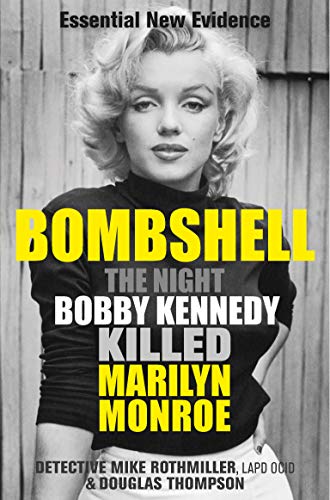In the early hours of August 5, 1962, Marilyn Monroe's lifeless body was discovered by her housekeeper at her Brentwood, California estate.
According to reports, the famous actress was surrounded by empty sleeping pill bottles, and shortly after, the police arrived on the scene.
However, there are those who dispute this version of events.
Walter Schaefer, the owner of an ambulance company, claims that Monroe was still alive when his driver, Ken Hunter, picked her up from her home that night.
He states that she was in a comatose state but breathing, and they were en route to an emergency room in Santa Monica when she passed away.
Furthermore, writer John Sherlock alleges that Monroe's psychiatrist, Dr. Ralph Greenson, told him years later that she died in the ambulance on the way to Saint John's Health Center.
Sherlock says that Greenson himself was present in the ambulance during Monroe's final moments.
Despite Monroe's undeniable beauty and glamour, the circumstances surrounding her death have remained shrouded in contradictions and conspiracy theories six decades later.
The Netflix documentary “The Mystery of Marilyn Monroe: The Unheard Tapes” explores these mysteries and suggests a cover-up.
For years, those closest to Monroe have questioned whether her death was intentional suicide, accidental overdose, or a politically motivated homicide.
Director Emma Cooper's documentary features audio recordings of interviews conducted by author Anthony Summers, who wrote the book “Goddess: The Secret Lives of Marilyn Monroe” in 1985.
These interviews shed light on the troubled star's personal struggles.
Summers believes that Monroe's connection to the Kennedy brothers, particularly during a time of intense Cold War tensions, played a role in her demise.
He reveals that both President John F. Kennedy and Robert F. Kennedy abruptly ended their alleged affairs with Monroe in the summer of 1962.
It is suggested that government officials feared Monroe's association with individuals connected to Fidel Castro and worried she might disclose sensitive information discussed during her encounters with the Kennedy brothers.
According to Summers, it is possible that the Kennedys wanted to silence Monroe to prevent any potential exposure of their discussions on nuclear matters.
He speculates that they decided they could no longer afford to have her in their lives.
Surveillance expert Reed Wilson, who had been hired to monitor Monroe and the Kennedys, claims that Robert Kennedy called Monroe the night of her death from his brother-in-law Peter Lawford's house.
Wilson describes a violent argument during which Monroe expressed feeling used and passed around.
Monroe's housekeeper, Eunice Murray, reveals that Robert Kennedy visited Monroe's house hours before her body was discovered.
Murray suggests that the situation became so contentious that Robert's protectors had to intervene.
The inconsistencies surrounding the timing and discovery of Monroe's death raise further questions.
Senior FBI agent Jim Doyle confirms that federal officials arrived at Monroe's home before the local police, suggesting a possible cover-up.
Doyle implies that these officials may have been sent to remove any evidence linking Robert Kennedy to Monroe.
Informant Harry Hall attests that once the FBI received orders from high-ranking officials, Monroe's death became a hush-hush matter.
He states that they did everything to keep Robert Kennedy's name out of the investigation due to his brother's presidency.
Fred Otash, a private detective who had worked for and against the White House, recalls being commissioned by Robert Kennedy to retrieve any evidence of involvement between Monroe and the Kennedys.
Otash mentions the possibility of diaries or notes.
Doyle confirms that records were indeed removed from Monroe's home.
Despite the suspicious circumstances, Summers concludes that there is no concrete evidence to support the theory that Monroe was murdered.
Instead, he leans towards the possibility of suicide or accidental overdose.
As we continue to unravel the enigma surrounding Marilyn Monroe's final moments, the haunting audio recordings from her therapy sessions provide a glimpse into her troubled life.
Monroe herself expressed the difficulty of sharing true stories versus false narratives.
In our quest for the truth, we must remember that Monroe was more than just a Hollywood icon; she was a complex individual whose untimely death continues to captivate and intrigue us.
Related Posts
- Why the Mafia Had to Kill Marilyn Monroe
- Why Frank Sinatra’s Attorney Advised Against Marrying Marilyn Monroe
- Why Frank Sinatra Suspected Marilyn Monroe’s Murder: Startling Revelations Unveiled in New Book
- Why Frank Sinatra Suspected Foul Play in Marilyn Monroe’s Death: Insights from a New Book
- What Marlon Brando Thought About Marilyn Monroe’s Tragic Demise































